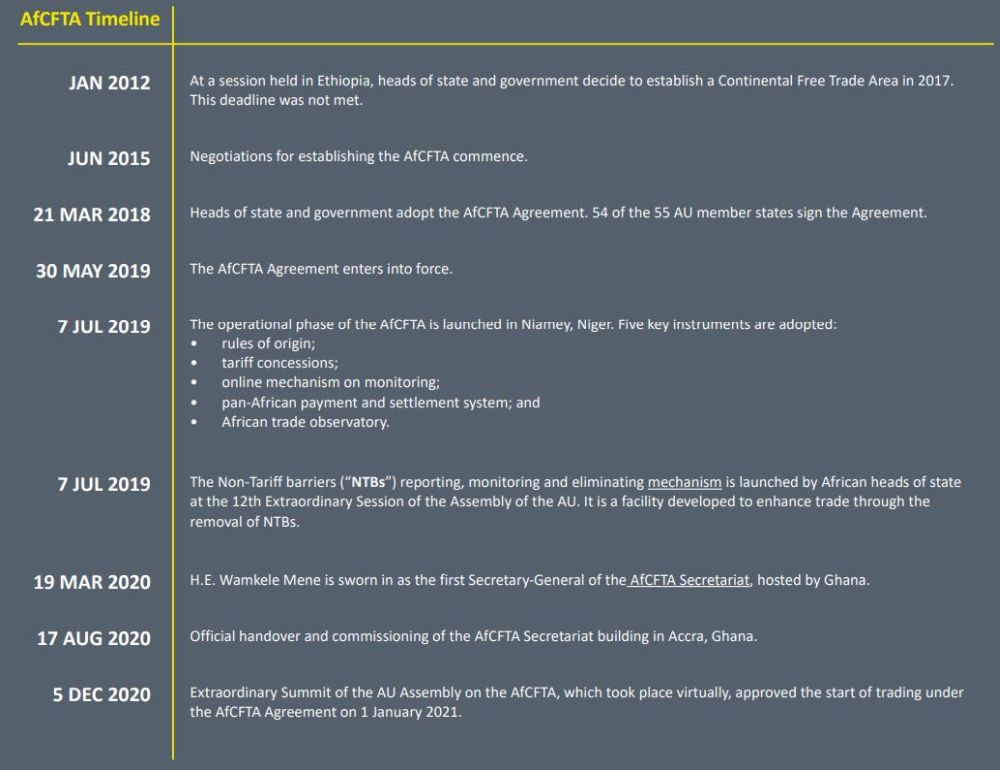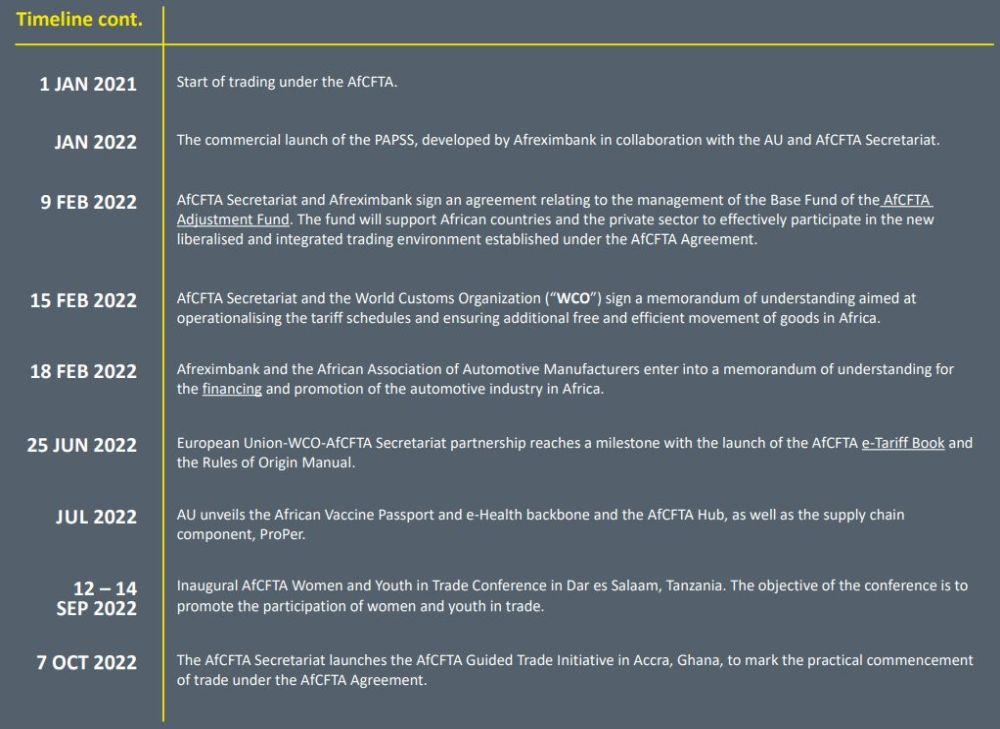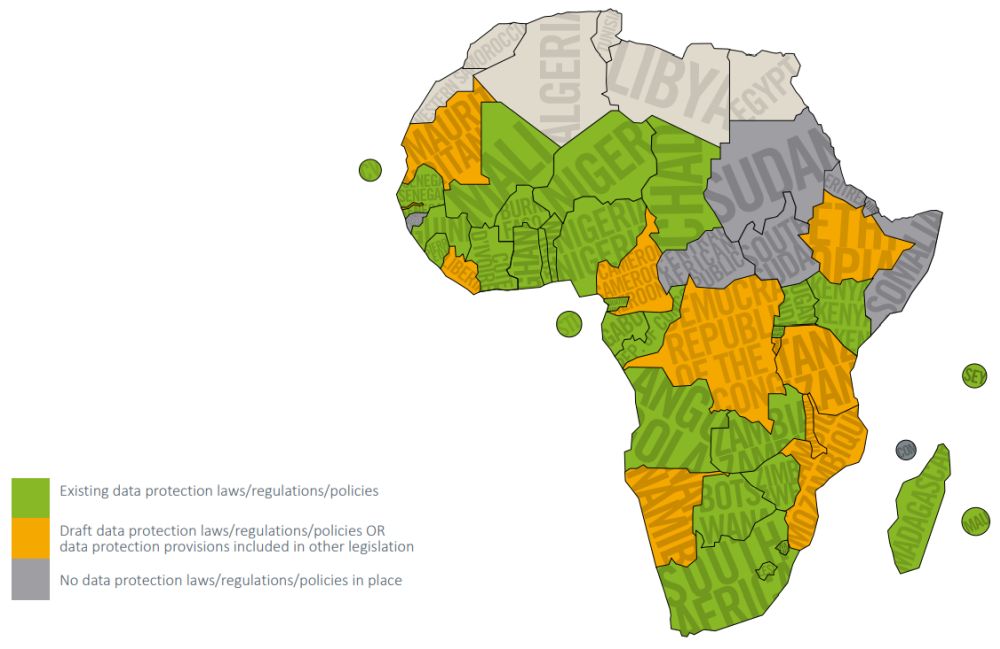- in Europe
- in Europe
- with readers working within the Law Firm industries
- within Accounting and Audit, Law Department Performance and Consumer Protection topic(s)
An overview of regulatory developments across sub-Saharan Africa
With government functions and business operations slowly returning to normality in 2022 following the COVID-19 pandemic, legislators across sub-Saharan Africa have implemented various regulations aimed to boost their economies and strengthen operating environments.
In this first edition of our bi-annual regulatory round-up, we focus on recent developments in the African Continental Free Trade Area ("AfCFTA") Agreement, as well as the data protection, anti-money laundering and other significant legislative spheres in the following key Anglophone Africa jurisdictions: Botswana, Ghana, Kenya, Namibia, Nigeria, Mauritius, Rwanda, Tanzania, Uganda and Zambia.
Following a slow trade uptake under the AfCFTA, which commenced on 1 January 2021, a pilot initiative involving eight participating countries and selected products was launched in October 2022 to encourage commercially meaningful trading, and to test the operational, institutional, legal and trade policy environment under the AfCFTA. The first shipments of Kenyan tea and Rwandan coffee under the initiative have already taken place and the AfCFTA Secretariat is optimistic that a significant increase in trading under the AfCFTA will follow.
With the rapid increase in digitisation in sub-Saharan Africa over the last few years, which has been accelerated by the pandemic, the broad implementation of data privacy and security laws to protect and secure personal information has become even more urgent.
Economic instability caused by the global pandemic has also increased financial crime, such as bribery, corruption, crypto-related crimes, and cybercrime in sub-Saharan Africa. This necessitated an increased focus on anti-money laundering efforts, and, as the region's economy starts to recover following the impact of the pandemic, various jurisdictions have implemented regulatory changes in this space.
In addition to these developments, significant regulatory amendments have been made in the financial services sector across most of the countries under review. Many of these changes are aimed at increasing the regulation of the digital economy. Kenya and Mauritius have also been specifically focusing on the environmental, social and governance space, while Namibia is looking to regulate its booming green hydrogen sector
PART ONE
African Continental Free Trade Area (AfCFTA): facilitating free trade across the continent
AfCFTA and its objectives
In 2018, the African Union ("AU") brokered the AfCFTA Agreement, one of its flagship projects under "Agenda 2063: The Africa We Want". This is set to be the world's largest free trade zone formed after the World Trade Organization, covering a market of over 1.2-billion people. It brings together the countries of the AU (except Eritrea, currently) and the eight African regional economic communities.
The main objectives of the AfCFTA are to create a single continental market for goods and services and to harmonise trade regimes and instruments across the continent to promote industrial development and intraAfrica trade.
The Agreement initially requires members to remove tariffs from 90% of goods, allowing free access to commodities, goods, and services across the continent. Ten percent of "sensitive items" will be phased in at a later stage. Future objectives aim at the free movement also of business persons and investments.
Current status of the AfCFTA
As of October 2022:
- the AfCFTA has been signed by all African countries, except Eritrea;
- it entered into force on 30 May 2019 when it was ratified by the required minimum of 22 member states;
- 44 of the 54 signatories (81.5%) have deposited their instruments of ratification of the AfCFTA Agreement; and
- trading under the AfCFTA commenced on 1 January 2021.
The architecture of the AfCFTA
The AfCFTA includes protocols on:
- trade in goods;
- trade in services;
- dispute settlement;
- investment;
- intellectual property rights; and
- competition policy.
Recently, digital trade and women and youth in trade have been added to the negotiating agenda.
- Phase 1 negotiations cover the Trade in Goods, Trade in Services and Dispute Settlement. Negotiations of the Protocol on Dispute Settlement have been concluded, while several issues (tariff concessions, rules of origin and schedules of specific commitments for services) are still being negotiated.
- Phase 2 negotiations covering Investment, Competition Policy and Intellectual Property Rights have recently started.
- Phase 3 negotiations will cover Digital Trade and Women and Youth in Trade.
AfCFTA implementation initiatives
Several initiatives aimed at accelerating the implementation of the Agreement have been unveiled, including:

"The fact that all member states of the AU, with the exception of Eritrea, have signed the Agreement, is a clear and very positive indication of the collective intent for regional cooperation on the continent. [While] the effective implementation is far more complex and subject to various conditions to be successful, several important milestones have been reached and more progress is anticipated in 2023 in attaining Agenda 2063's grand vision of inclusive and sustainable development."
- Celia Becker | ENSafrica Executive


PART TWO
protecting personal information
With data crossing borders following increased internet penetration and the use of social media and other digital information platforms, it is becoming more important to ensure that personal data is protected, processed and used for the correct purpose.
In recognising certain undesirable online activities that information and communications technology ("ICT") facilitates, many countries have introduced data protection and privacy legislation to create safe and trusted information spaces. African countries and regional bodies have, since the early 2000s, steadily adopted data protection and privacy laws and frameworks, which are at various levels of implementation. As illustrated in the map below, only eight sub-Saharan African countries do not currently have final or draft data protection laws, regulations or policies, or data protection and privacy provisions included in other legislation.
While these protection laws are generally good news for those who have data stored or transferred online, this may not be so for those who have to navigate this mass of regulation. Non-compliance with data protection legislation represents a major risk for businesses operating in Africa, with the potential for fines, penalties, reputational loss and even jail time.
Data protection & privacy legislation in sub-Saharan Africa

To view the full article click here.
The content of this article is intended to provide a general guide to the subject matter. Specialist advice should be sought about your specific circumstances.


